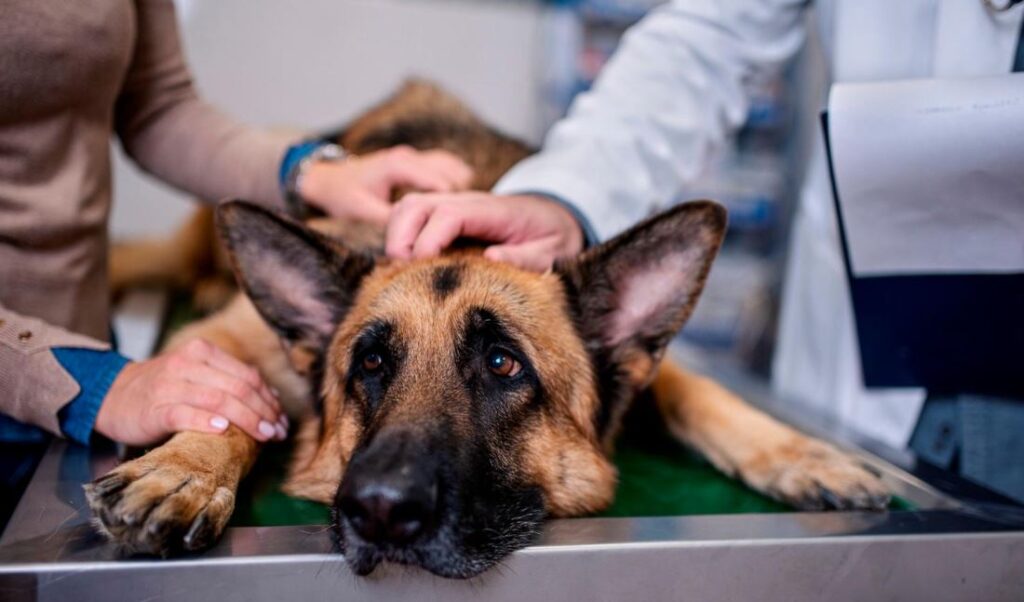Jan 17, 2024
Does Your Dog Seem Unwell?
As dog owners, our furry companions are more than just pets; they are family. The immeasurable joy and boundless love dogs bring to our lives are treasures beyond measure. Yet, this joy is accompanied by a duty to safeguard their health and overall well-being. Recognizing when your dog might feel under the weather is crucial to this responsibility. Much like humans, dogs can experience various health issues, and their inability to communicate verbally means it’s up to us to be vigilant about their health signs.
This post will delve into the various symptoms that might indicate your dog isn’t feeling well, from physical changes to behavioural shifts. Understanding these cues can be the difference between a minor health issue and a serious medical condition, whether it’s a subtle change in their eating habits or a more noticeable sign like lethargy. We’ll also touch on some common canine illnesses when to seek veterinary care, and how to care for an unwell dog at home. Keep in mind, a healthy dog thrives not just on the affection and love we bestow but also on our vigilant attention to their health needs. Let’s explore how we can ensure our canine companions stay as happy and healthy as possible.
Physical Symptoms
The first set of signs to be aware of are physical symptoms. These are often the most noticeable and can be indicators of various health issues.

- Loss of Appetite: A sudden decrease in appetite is a common sign that something might be wrong with your dog. While it’s normal for dogs to skip a meal or two, prolonged disinterest in food is a concern.
- Vomiting and Diarrhea: Occasional vomiting or diarrhea can be normal for dogs, but frequent episodes are a cause for concern. These symptoms can indicate gastrointestinal issues or even something more serious.
- Unusual Weight Loss or Gain: Unexpected weight changes often indicate underlying health problems. Weight loss can be a symptom of metabolic disorders, cancer, or other diseases, while weight gain might indicate issues like hypothyroidism.
- Lethargy: If your usually energetic dog is suddenly lethargic and uninterested in activities they usually enjoy, it’s a clear signal that they are not feeling well.
- Difficulty in Breathing: Labored or rapid breathing can be a heart or lung disease symptom and should be addressed immediately.
Behavioural Changes
Behavioural changes in dogs are often subtle and can be easily overlooked. These changes, however, are significant indicators of their health.
- Increased Aggression or Withdrawal: A dog in pain or discomfort may become irritable or aggressive. Alternatively, some dogs may withdraw and seek isolation.
- Unusual Laziness or Sleep Pattern Changes: Alterations in sleeping habits, like increased sleep or unusual sleeping times, may indicate your dog is experiencing health issues.
Coat and Skin Changes
A dog’s coat and skin condition is a good indicator of their overall health.
- Excessive Shedding or Dull Coat: While some shedding is normal, excessive shedding or a coat that has lost its lustre could signal health issues.
- Rashes and Bumps: Skin problems in dogs can manifest as rashes, bumps, or sores. These could be indicative of allergies, infections, or other skin conditions.
Common Canine Illnesses
Several common illnesses can cause the above symptoms. While this is not an exhaustive list, it covers more frequent conditions.
- Kennel Cough: A highly contagious respiratory disease, kennel cough is characterized by a strong cough and can lead to lethargy and loss of appetite.
- Parasites: Internal parasites like worms can cause vomiting, diarrhea, and weight loss. Infestations of external parasites, such as fleas and ticks, often result in skin discomfort and alterations in your dog’s coat.
- Food Allergies: Dogs may have allergic reactions to specific foods, which can manifest as skin issues, digestive disturbances, and shifts in eating patterns.
It’s crucial to recognize that these symptoms could point to a range of health issues, some potentially serious or even life-threatening. Therefore, if you notice any of these signs in your dog, it’s crucial to consult with a veterinarian as soon as possible. Early detection and treatment are often key to successful recovery.
When to Visit the Vet
Identifying the right time to consult a veterinarian is crucial in ensuring the health and well-being of your dog. Timely and early intervention can profoundly influence the success of treatment and the speed of recovery. Here are some guidelines to help you decide when it’s time to seek professional help:
- Persistent Symptoms: If any earlier symptoms persist for more than a day or two, it’s advisable to consult a veterinarian.
- Severe Symptoms: Certain symptoms, such as difficulty breathing, severe vomiting or diarrhea, suspected poisoning, or severe lethargy, require immediate veterinary attention.
- Behavioural Changes: A vet visit is warranted if your dog exhibits significant behavioural changes, such as uncharacteristic aggression or extreme withdrawal.
- Regular Check-Ups: Preventative care is just as important as treatment. Regular check-ups with your veterinarian can help catch potential health issues early and keep up-to-date with vaccinations.
Home Care Tips
While professional veterinary care is irreplaceable, there are ways to comfort and care for your sick dog at home. These tips can help manage your dog’s symptoms and provide comfort until a vet can see them:
- Hydration: Always provide your dog with access to clean, fresh water. This is especially vital to prevent dehydration, a serious risk if your dog is suffering from vomiting or diarrhea.
- Comfortable Resting Area: Provide a quiet, comfortable space for your dog to rest. Avoid busy or noisy areas of the house, which might cause additional stress.
- Monitor Symptoms: Keep a close eye on your dog’s symptoms. Note any changes or developments, as these can be important for your vet to know.
- Avoid Self-Medicating: Do not give your dog any medication without consulting your veterinarian, as some human medications can harm dogs.
- Nutrition: If your dog refuses to eat, consult your vet. They may recommend a special diet to ensure your dog gets the necessary nutrients.
Remember, these home care tips are not a substitute for professional veterinary care. They are meant to provide comfort and support for your dog until they receive appropriate medical treatment.
Prevention Strategies

Preventing illness is key to maintaining your dog’s health. Here are some strategies to help prevent common canine illnesses:
- Regular Vaccinations: Keep up with your dog’s vaccination schedule. Vaccinations prevent serious diseases like parvovirus, rabies, and distemper.
- Balanced Diet: Feed your dog a balanced diet suitable for their age, breed, and health status. Consult your vet for dietary recommendations.
- Regular Exercise: Ensure your dog gets regular exercise to maintain a healthy weight and promote overall well-being.
- Routine Health Checks: Regular health checks are essential for early detection of potential health issues. Your vet can conduct examinations and recommend any necessary tests.
- Parasite Control: Regularly check your dog for fleas, ticks, and worms. Use recommended preventatives to keep these parasites at bay.
- Dental Care: Don’t overlook dental health. Regular teeth cleaning and dental check-ups can prevent oral diseases.
- Grooming: Regular grooming helps detect skin and coat problems early and helps maintain overall hygiene.
By implementing these prevention strategies, you can significantly reduce the risk of illnesses and ensure your dog lives a long and healthy life. Prevention is always better than cure, and by taking proactive steps in your dog’s healthcare, you can avoid many common health issues.
This detailed guide delved into the various aspects of identifying and addressing signs of illness in dogs. Key takeaways include:
- Understanding the physical symptoms like loss of appetite, vomiting, and lethargy.
- Recognizing behavioural changes such as increased aggression or withdrawal.
- Noticing coat and skin changes, including excessive shedding or rashes.
We’ve also discussed common canine illnesses like kennel cough, parasites, and food allergies and emphasized the importance of early veterinary intervention.
Timely visits to the vet, especially when symptoms persist or are severe, play a critical role in your dog’s health. Regular check-ups and preventative care cannot be overlooked. Ensuring your dog remains hydrated, comfortable, and closely monitored at home is vital while remembering that home care is not a substitute for professional advice.
Preventative measures like regular vaccinations, a balanced diet, routine exercise, and proper grooming are crucial in preventing illnesses. Taking proactive steps in your dog’s care can greatly minimize the likelihood of health complications.
As dog owners, our vigilance and proactive approach to our pets’ health can significantly affect their quality of life. We must interpret the signs they cannot verbally express and act in their best interests.
More Details